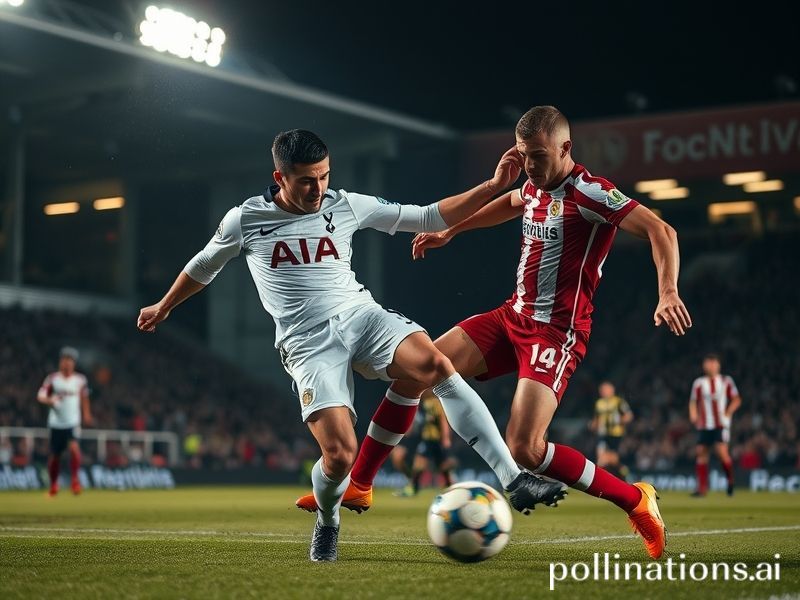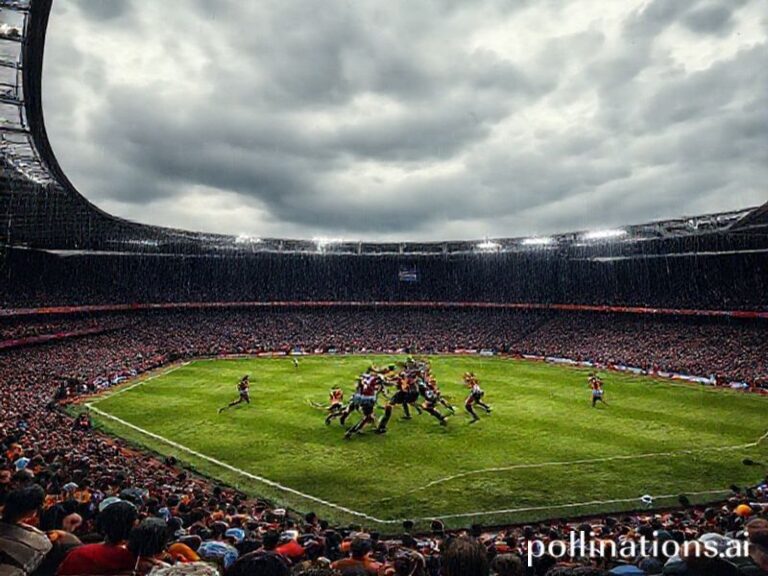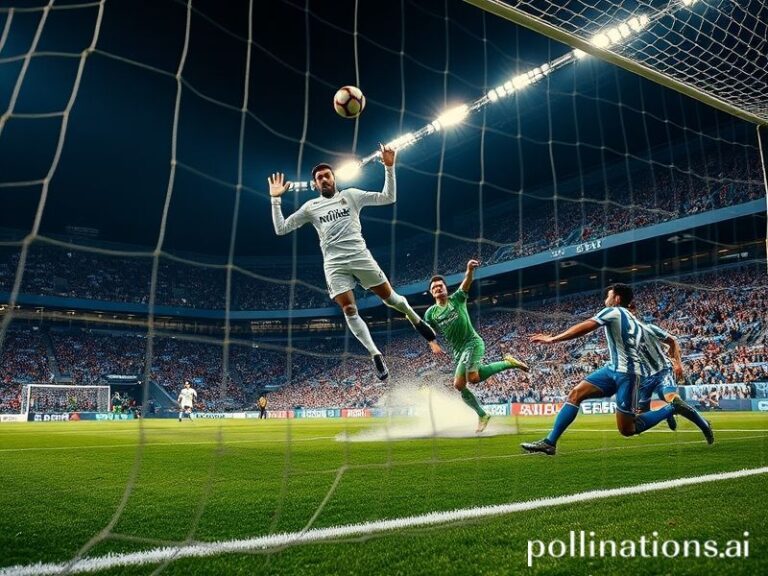Tottenham vs Doncaster: When Global Inequality Wears Football Boots
Tottenham Hotspur versus Doncaster Rovers is, on paper, the sort of fixture the footballing gods schedule after a long lunch and three bottles of Châteauneuf-du-Pape. One club recently renovated its stadium to the tune of a small nation-state’s GDP; the other rents its training cones by the hour. Yet when the FA Cup third-round draw paired North London with South Yorkshire, diplomats in beige corridors from Brussels to Brasília felt the faintest tremor—because nothing quite maps global inequality like a mismatched cup tie.
Consider the optics from the International Monetary Fund’s cafeteria: Tottenham’s balance sheet is a case study in leveraged finance, complete with retractable pitch and cheese-room that can host a G7 summit if required. Doncaster, meanwhile, filed accounts last year that read like a Dickensian novella where everyone is owed sixpence. The fixture is less a football match than a live-streamed balance-of-payments seminar, with popcorn priced at Premier League mark-up.
Over in Davos, the cognac-swilling elite will tune in for the anthropological angle. They’ll watch Spurs glide about in bespoke Nike knitwear while Donny’s lads sport a kit sponsored by a local scaffolding firm whose website still contains Comic Sans. Analysts at Credit Suisse will mutter darkly about wage compression and the death of meritocracy, then invoice their own overtime. Somewhere a junior economist will calculate that Harry Kane’s left boot earns more per Instagram post than Doncaster’s entire match-day catering budget. The spreadsheet will be color-coded, naturally.
The geopolitical subplot is equally piquant. Tottenham’s squad features representatives from five continents, a micro-UN of tattooed quadriceps. Doncaster’s starting XI, meanwhile, hails largely from post-industrial towns whose primary export is wistful nostalgia. When the anthems play—one stadium opera, the other a brass band that last tuned up during the miners’ strike—commentators will unironically call it “culture clash,” as if UNESCO might list both fanbases as intangible heritage alongside yodelling and angry tweeting.
Bookmakers from Macau to Malta have installed Spurs at 1-20, odds so miserly they could only be loved by a Swiss private banker. Yet the planet’s true currency is hope, and hope is Doncaster’s sovereign wealth fund. In Jakarta, ride-hailing drivers pool coins for an accumulator that dares to imagine a 1-1 draw. In Lagos, a barber offers free haircuts if the Rovers score. Such wagers are less about sport than about the universal human impulse to watch Goliath stub his toe on a Yorkshire pothole.
Environmental ministries will also be watching, albeit through parted fingers. Tottenham’s stadium boasts carbon-neutral matchdays, a phrase that sounds reassuring until you notice the fleet of private jets parked at Luton. Doncaster’s Keepmoat, meanwhile, is so eco-friendly it barely emits enough heat to warm the meat pies. Climate scientists will run comparative models, then sigh and open another tin of existential dread.
And then there’s the soft-power scoreboard. Should Spurs win 5-0, the global narrative writes itself: capital accumulates, the rich get richer, insert yawning emoji. Should Doncaster nick a replay, the BBC will dispatch a crew to film tearful steelworkers hugging in the stands, soundtracked by a Coldplay knock-off. Either way, Netflix has already optioned the documentary rights; working title “David v Goliath: Sponsored by an Online Bookmaker.”
When the final whistle blows, the world will have learned precisely nothing and forgotten everything by supper. Tottenham will return to fretting about top-four coefficient calculations; Doncaster will go back to GoFundMe campaigns for new shin pads. Yet for 90-odd minutes, a planet fragmented by pandemics, populism, and populist pandemics will share one gloriously stupid question: can the underdog bite the hedge fund?
The answer, of course, is probably not. But somewhere a child in Kuala Lumpur just taped Doncaster’s crest to a bedroom wall, proving that hope, like debt, is the one truly borderless commodity.







